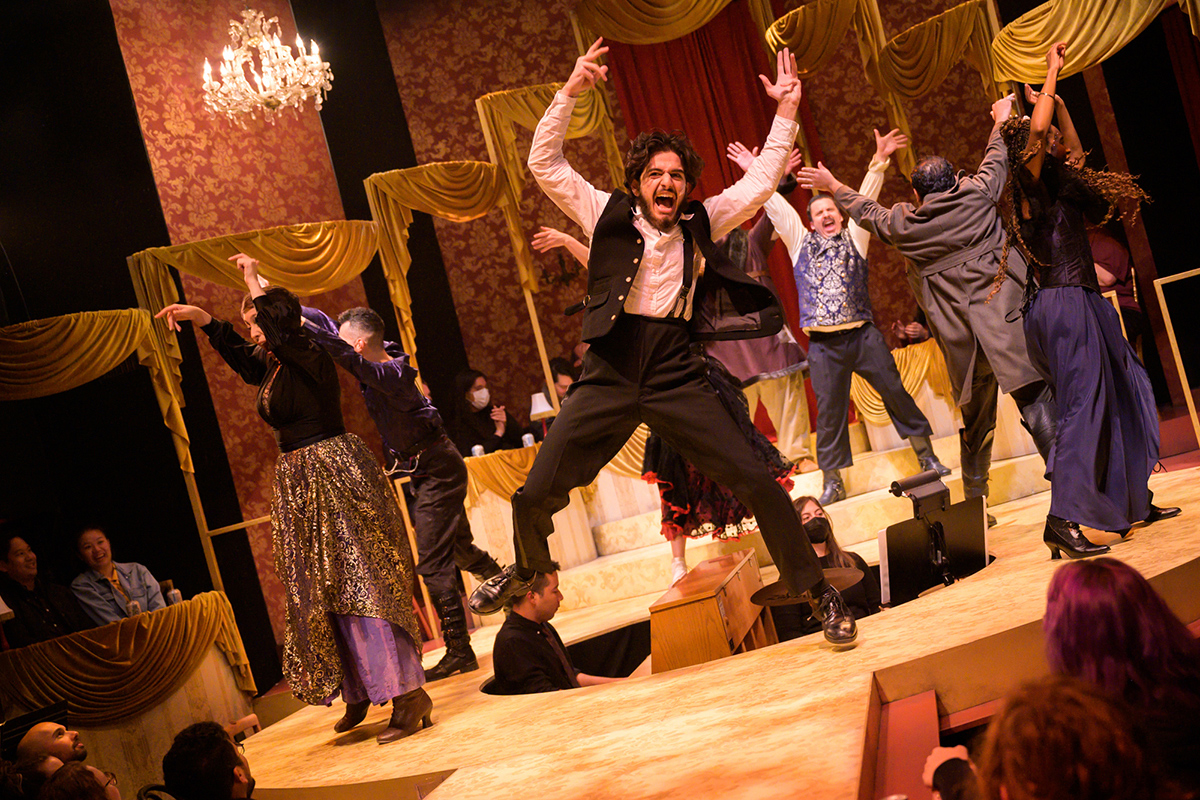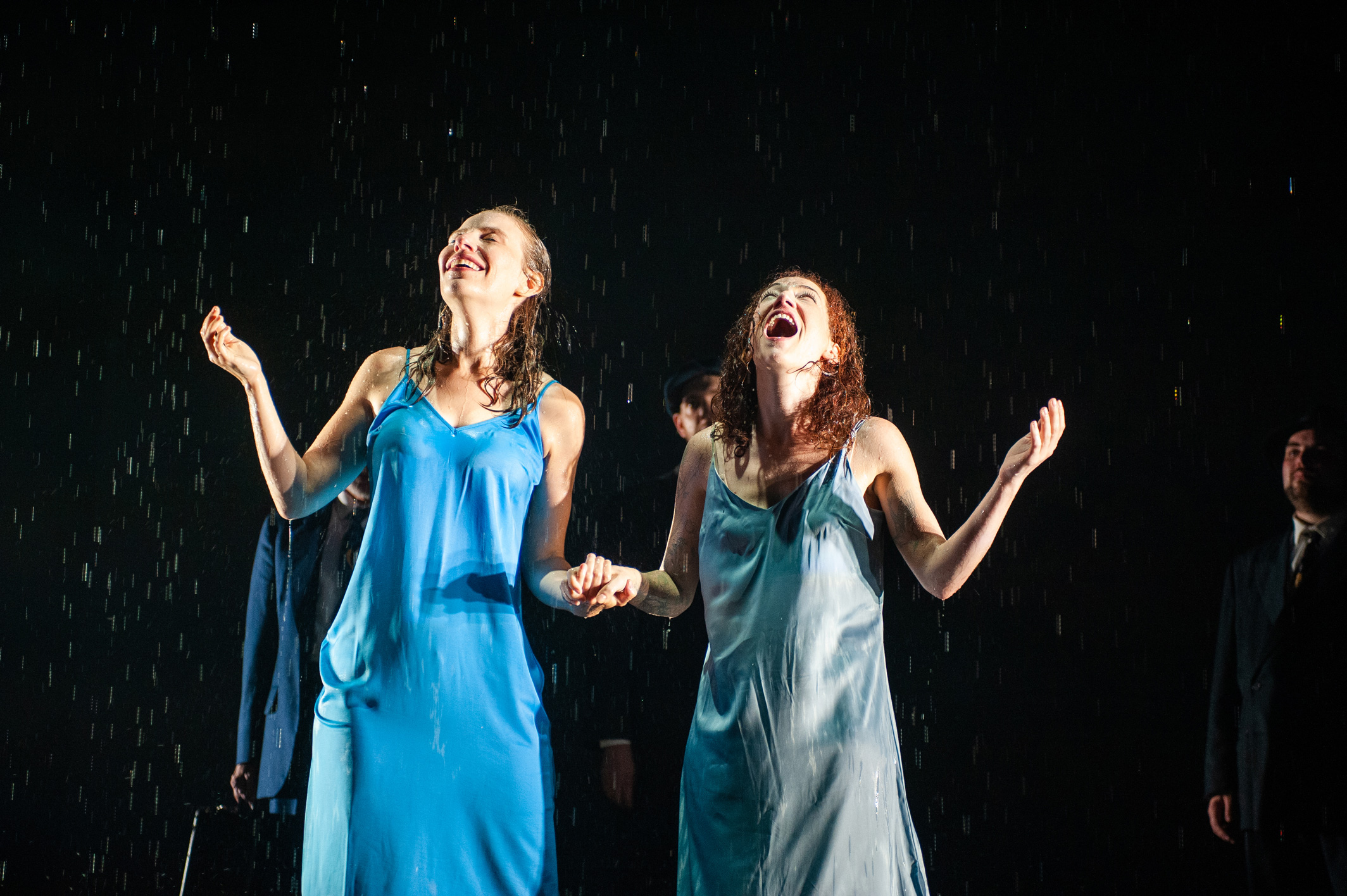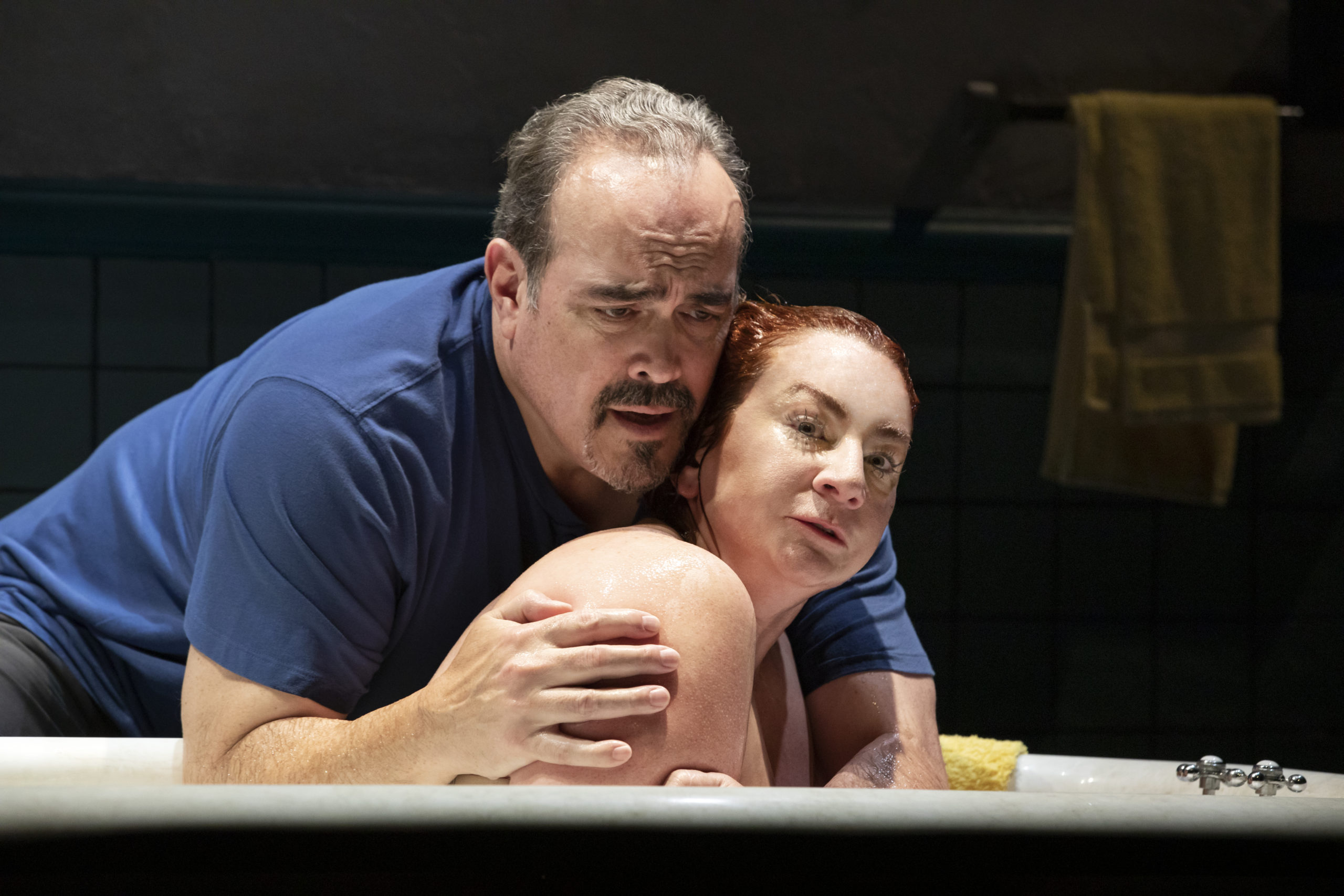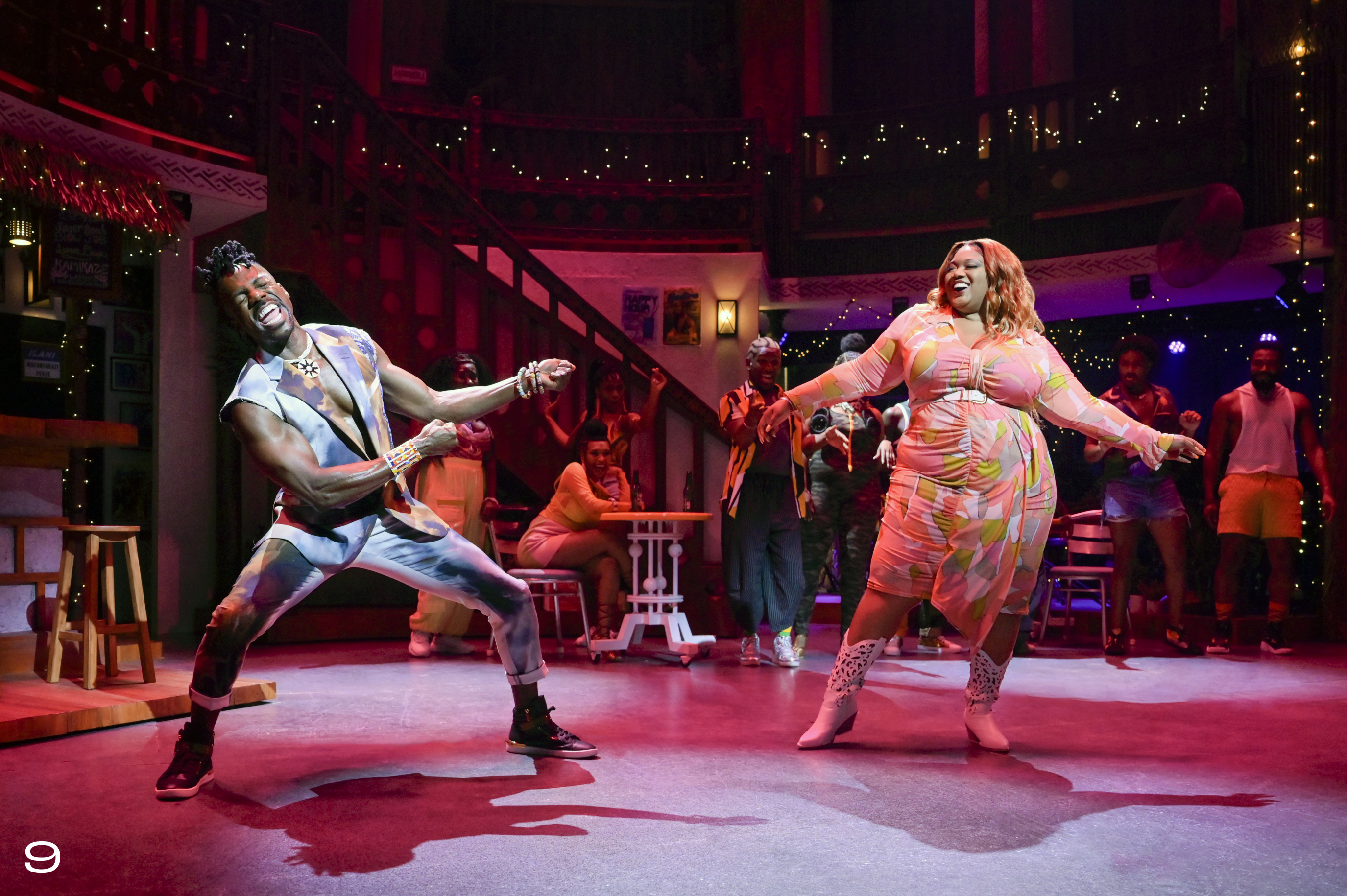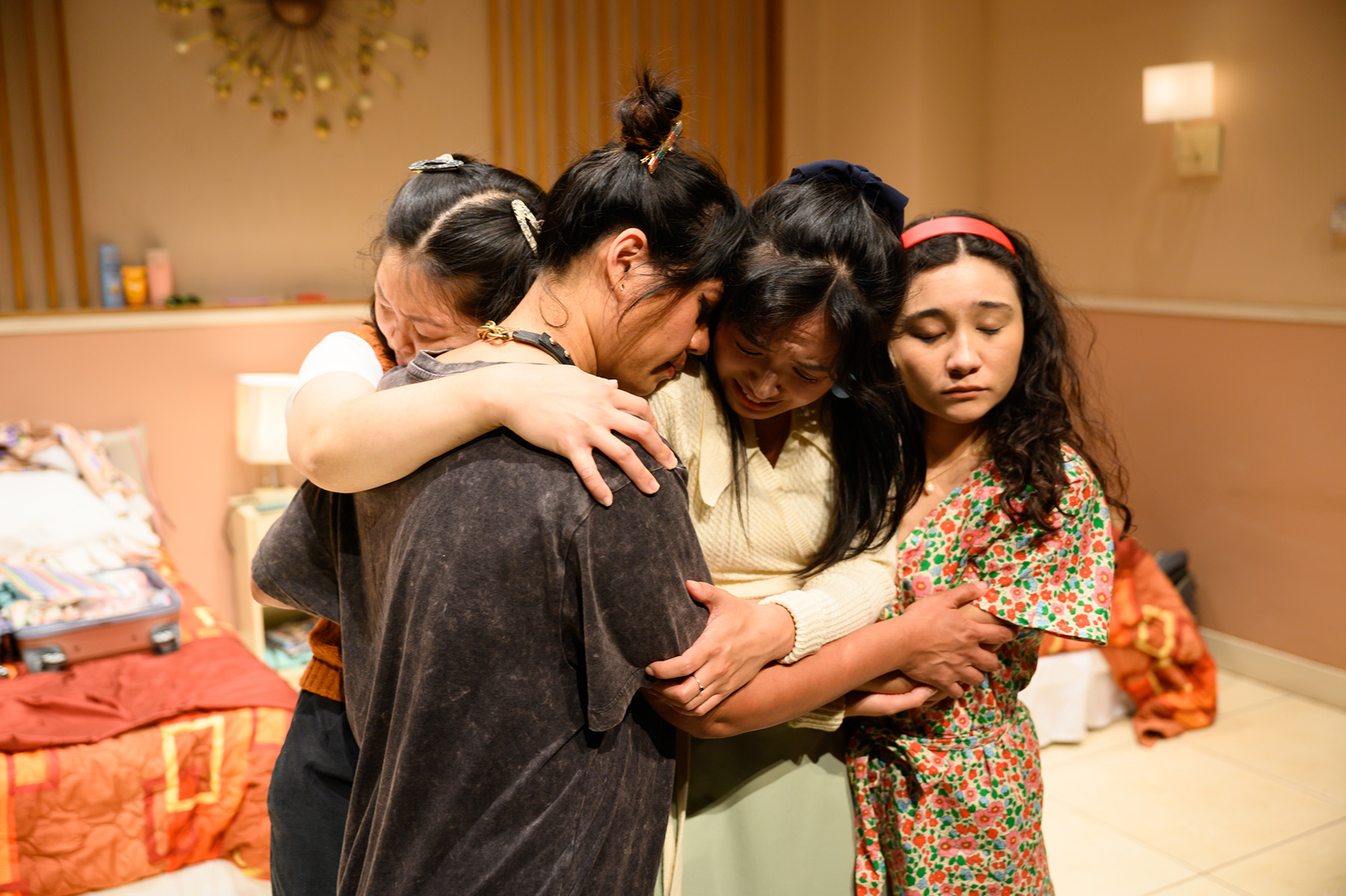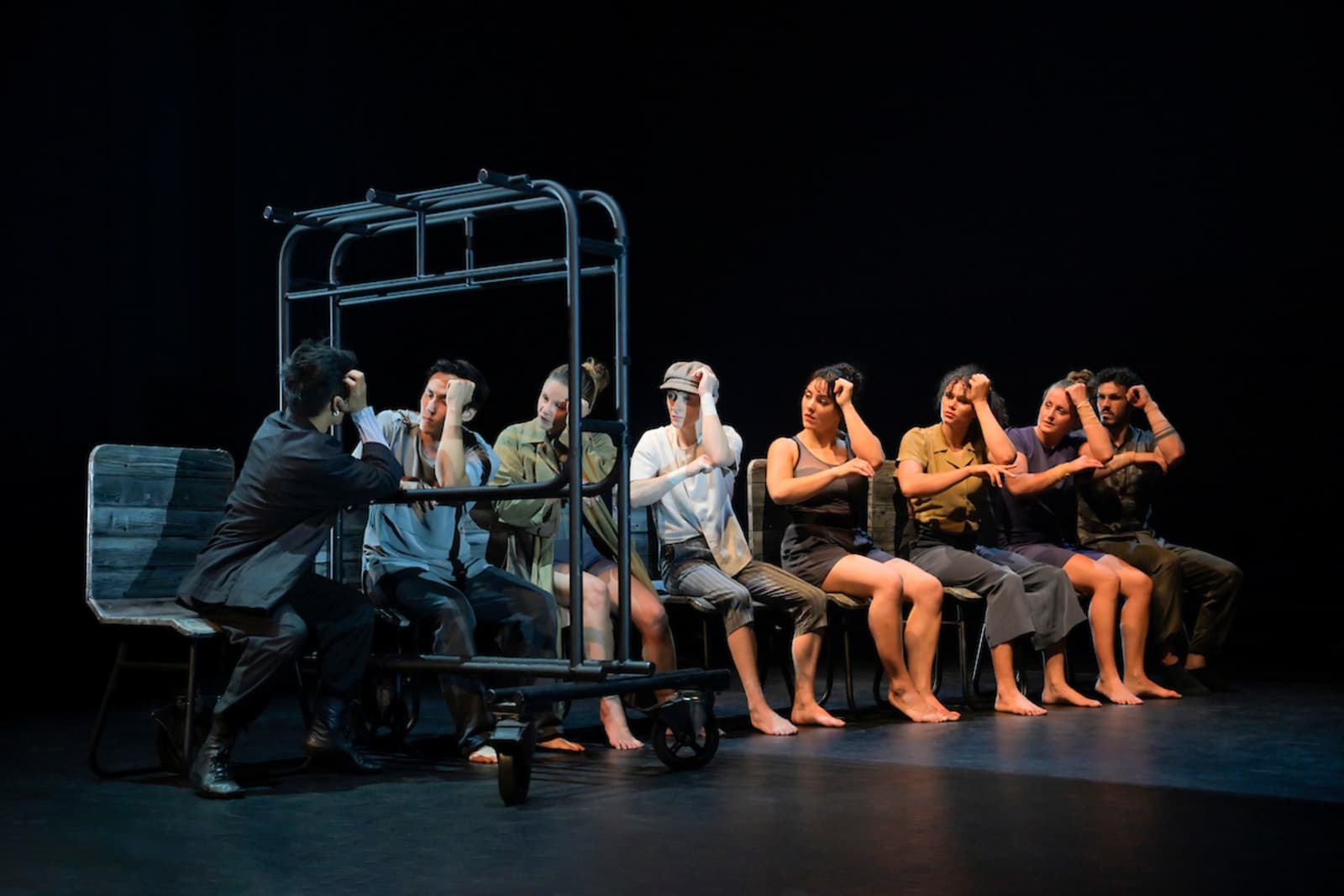After a two-year hiatus caused by the COVID-19 pandemic, we were finally able to return to Ashland for the Oregon Shakespeare Festival this year. Like all theaters, they are having to come back a bit tentatively, so I have to say the scope of the festival was dramatically less than what we're used to. But it was a treat to be back in lovely Ashland, seeing some of our favorite artists.
So, what's changed?
The two most striking changes in the festival this season were the reduction in the number and scope of the plays offered, and the absence of rotating repertory casting.
The 2022 festival season contained seven total plays, down from the previous eleven. But it wasn't just the number of plays that was reduced. There are fewer performances of each play, and many of the plays are just smaller. For example, one show had a single actor; another had three, and yet another five. This is not a comment on quality--those shows I listed were among the very best we saw. But it reflects both the difficulty of producing a large show when one needs to take precautions to prevent spreading disease and a caution about expending resources on a show when it's uncertain how many people will actually come to see it. The scheduling of the shows was also spread out so that there was no overlap at the middle of the season as there has often been. Some shows ended in July, others didn't begin until August. So it wasn't possible to see all the season's offerings in a single visit. We settled on making two trips, which was fine.
Another victim of the pandemic was repertory casting. Needing to isolate the cast and crew of each show meant that repertory casting was essentially impossible. Overlapping casts and crews would greatly increase the risk of spreading illness across multiple shows, so this seemed a reasonable precaution. It was disappointing to us in the audience, who enjoy seeing actors stretching across a variety of roles. And I imagine it must also have been a blow to the actors who rely on that level of work.
The bottom line here is that there are fewer shows, fewer performances of each, with smaller casts and no chance to be cast across shows. That means a lot fewer opportunities for each artist--a dramatically scaled-down festival.
I should add that another thing that has gone somewhat missing in all this is the festival's eponymous bard: of the seven plays, there were only two Shakespeare works. Although I realize the pandemic necessitated a retreat from the festival's commitment to produce the entire canon of Shakespeare's work in a decade, this pacing suggests that they might be backing away from the canon even more than that, which would be disappointing.
But what about the plays?
Between our two trips, we managed to see all seven of the shows on offer. Of those, I would say two were outstanding, two were very good, and the other three were disappointing on some level.
The best
On each of our visits, we saw one outstanding play, clearly better than the others. For what it's worth, both were in the Thomas Theater (the smallest, black-box theater), but both were ambitious new shows.
unseen
This was the show for the first half of the season in the Thomas. Written by Mona Mansour and directed by Evren Odcikin, it was a west coast premiere. The central character, Mia (Helen Sadler) is a conflict photographer who has been documenting the conflict in Syria when something happens. Her memory has holes, and her ex-girlfriend, Derya (Nora el Samahy), and her mother from California (Caroline Shaffer) try to help her piece together what physical and psychological trauma has landed her here.
The acting, design, and direction for unseen were all amazing. It was clearly the best show we saw on our first visit.
Confederates
After unseen closed, Confederates took over the Thomas Theater, and it's another powerhouse production. Another west coast premiere, this one's by Dominique Morisseau and directed by Artistic Director Nataki Garrett. The writing is just brilliant, with more layers than I can fathom, and the production design brilliantly illustrates the parallel challenges navigated by a modern-day black university professor and an enslaved woman during the American Civil War. We know from Sandra (Bianca Jones)'s opening monologue that this is going to be difficult material, and it is. And while Sara (Erika Rose) demonstrates from her first scene that she well knows the difficulty of staying in line with the masters while still trying to remain true to herself and her family, Sandra's similar conundrums only become apparent as the play progresses.
Using the other actors to portray characters who fill remarkably similar roles in the lives of the two women, on a stage that places the professor's office and the slave shack side-by-side (great scenic design by Nina Ball!), we get a visceral appreciation for both how much and how little has changed over the decades between their lives. I can't do justice to this play in this brief summary. It runs through October 29--go see it!
The next level
Two more shows stood out as being good productions, definitely of a caliber I expect from OSF.
How I Learned What I Learned
This is a show I had seen before (but not blogged about; it was in May, 2019, while I was on blog hiatus). Ubuntu Theater Project (now Oakland Theater Project) co-produced this show with Lorraine Hansbury Theatre and Marin Theatre Company. It's a one-actor show by August Wilson, sort of autobiographically describing his life as a black man in America (or more particularly, Pittsburgh, where he grew up). That production starred Steven Anthony Jones, and he again played the role in Ashland.
I had thought the Ubuntu production was good, though Jones had some lapses. I thought he was much better in the Ashland version: both more confident and more personal. And it didn't hurt to have a bigger budget, so better lighting, a fancier set (also by Nina Ball!), etc. It was just a more polished and convincing production. As noted earlier, a solo show is not something I would ordinarily go to Ashland to see, but the quality of the production was definitely up to their standards.
King John
One of the few Shakespeare history plays I had not yet seen in person (though I have seen a filmed version from Stratford), this was a fairly unconventional staging, directed by Rosa Joshi of the upstart crow collective (who co-produced this), with a cast that is all female or non-binary. After a few minutes, the gender thing just stops being an issue, and you just get into the drama. I have to say that they play (though the ending is a bit weak) holds up very well: it's much clearer, more direct, than most Shakespeare histories. And the cast was really solid, with particular props to Jessika D. Williams as the Bastard (she had impressed me
several years ago at CalShakes).
This is another show that is still running, through October 29. If you're making the trip to see Confederates, you can see this, too. Worth it!
The other three
I don't have a lot to say about these. I'll just write about them in the order we saw them. Suffice it to say that none of these would justify a trip all the way to Ashland, but it's not a complete waste of your time to see them if you're there.
The Tempest
I hate putting this on the list of inferior productions, but it belongs there. I love the play in general, and a number of my favorite actors are in the cast. The problems I saw here were directorial. As far as I can tell, either director Nicholas C. Avila didn't know what message he was trying to send, or he didn't figure out how to craft that message out of his actors. But when we saw the show in early July, it had been running for a month, and still hadn't found a direction. Maybe it's better now. I hope so, but I don't have a lot of hope. It's still running, through October 15. But mostly it felt like a waste of a lot of talent, and that's not something I've ever encountered at OSF before.
Once on This Island
This show is very well done. Good music, dancing, energy. Unfortunately, there is no real substance to the story. It's pretty much a story about the happy downtrodden Haitians trying to live happily in the shadow of the colonizing French. And the dream of crossing the racial/class barrier that gets thoroughly thwarted. So it was kind of pleasant, but quite unsatisfying. I'm not sure what the point of this was. Also still running, through October 30th.
Revenge Song: A Vampire Cowboys Creation
I had such high hopes for this one. It's by Qui Nguyen, who wrote
Vietgone, which I've seen twice and loved
both times. And this promised to be sort of similar, a musical about a queer, swashbuckling woman (Julie d'Aubigny--a real, historical figure), trending toward superhero status. I just feel like the show wasn't ready for prime time. It felt very uneven, maybe unfinished. My expectations of a show at OSF are for something definitely more polished. And it was compounded by the fact that the sound mixing was terrible. Every time actors started to sing with the band, their voices got dropped, making it difficult to hear what they were singing. That's pretty inexcusable.
Again, there's some real talent in the cast and design crew. We even had to postpone seeing this from early July (rain) to September, and it still felt unfinished, and the sound was a problem. That's very disappointing. You, too, can still be disappointed if you go see it before it closes on October 14.
Summing Up
It was awesome to be back in Ashland, both times. The town is much as we remembered it, though a number of businesses did not survive the shutdown, and some of our favorite restaurants have folded. But there aren't a lot of empty storefronts, and new restaurants (some of them excellent) have opened.
That said, we were there for the Independence Day weekend in July, and where Ashland would normally be packed to the gills, there were tables at restaurants, empty seats in the theaters, and parking spaces available. The outdoor theater shows had pretty good crowds, but the indoor theaters felt about half or maybe two-thirds full at best. On a holiday weekend in the peak of their season. When we returned in September (after Labor Day), it was definitely not crowded.
So I have to say I'm concerned about the future of the festival. Fewer shows, lower ticket prices, fewer performances, smaller crowds. All that adds up to a serious drop in revenue. I can only imagine that they must be struggling. And next year's season looks to be much the same: seven shows, including a solo show, only two Shakespeare plays. and so on. I hope by next year people will feel more confident about going out and about, taking trips to see theater and such. Only time will tell.

